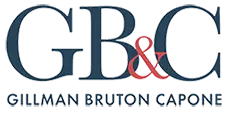The following is a short checklist of Tax Planning and Practice Strategies which may be followed by an attorney for an Individual considering the filing of a Chapter 7, Chapter 13, or Chapter 11 Bankruptcy.
1. Whether to File a Bankruptcy Case?
The first question to be reviewed is whether a bankruptcy filing of any kind is best for the individual. (Note: When discussing individuals, this is meant to include one person or a married couple filing a joint bankruptcy case.). Issues such as the treatment of outstanding taxes in the case, whether an individual is able to repay the necessary amounts through the case, and whether the cost associated with the case is worth the benefit to be received. For example, if an individual is unable to payoff a tax obligation in a Chapter 13 bankruptcy case in the required time, they may be better served with an Offer in Compromise with the IRS.
2. When to File?
The timing of the filing of a Bankruptcy Petition can be crucial in tax issues. One of many examples is the ability of a bankruptcy debtor to discharge certain unsecured taxes. Unsecured income taxes that were first due more than three (3) years before the bankruptcy case was filed, for which a timely and non-fraudulent return was filed, can be discharged in full in any chapter of bankruptcy. Therefore, before filing such a case, the individual and attorney should review whether the return was timely filed and whether the tax has been “due and owing” for more than three years.
3. Where to File?
Although it is rare for individuals to have choices in New Jersey as to where their case is filed, in some limited examples, individuals may have the ability to file in more than one jurisdiction and should review the relative benefits of filing in each venue.
4. Which Chapter of the Bankruptcy Code Under Which to File?
This is often the most important decision for individuals and often involves reviewing all of the financial circumstances, past, present, and future, with counsel.
5. What must be accomplished before filing a Bankruptcy Case?
Since the bankruptcy code generally requires that tax returns which are due be filed prior to the filing of the Petition, individuals should review their past tax filings and confirm that all returns are filed. If returns remain due, there should be immediate planning to have the returns filed as soon as possible.
This blog and site provide information about the law designed to help users educate themselves about their own legal needs. But legal information is not the same as legal advice — the application of law to an individual’s specific circumstances. Although we go to great lengths to make sure our information is accurate and useful, we recommend you consult a lawyer if you want professional assurance that our information, and your interpretation of it, is appropriate to your particular situation.


